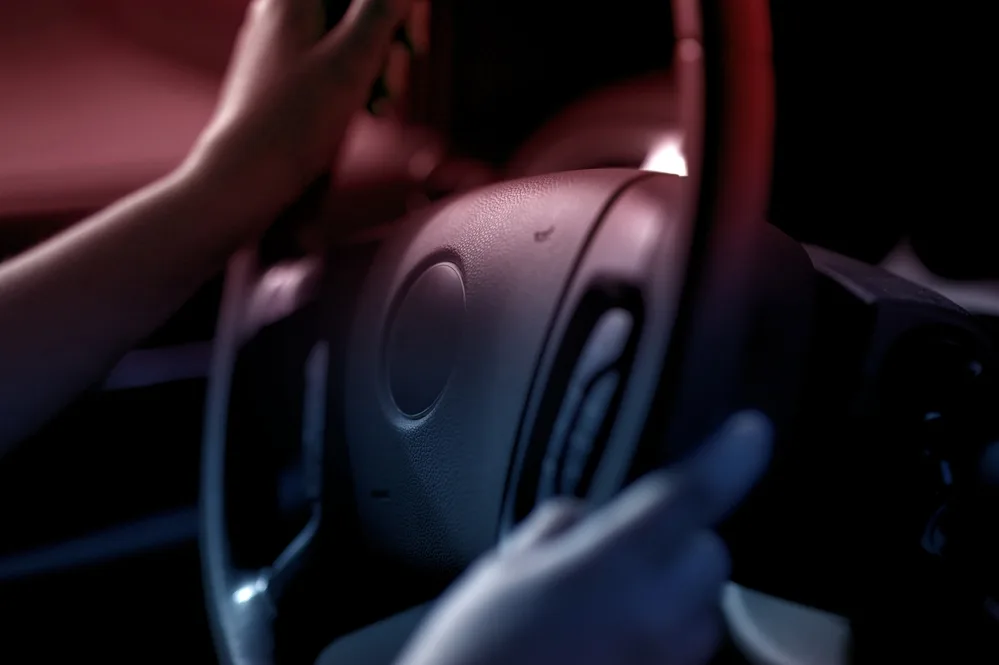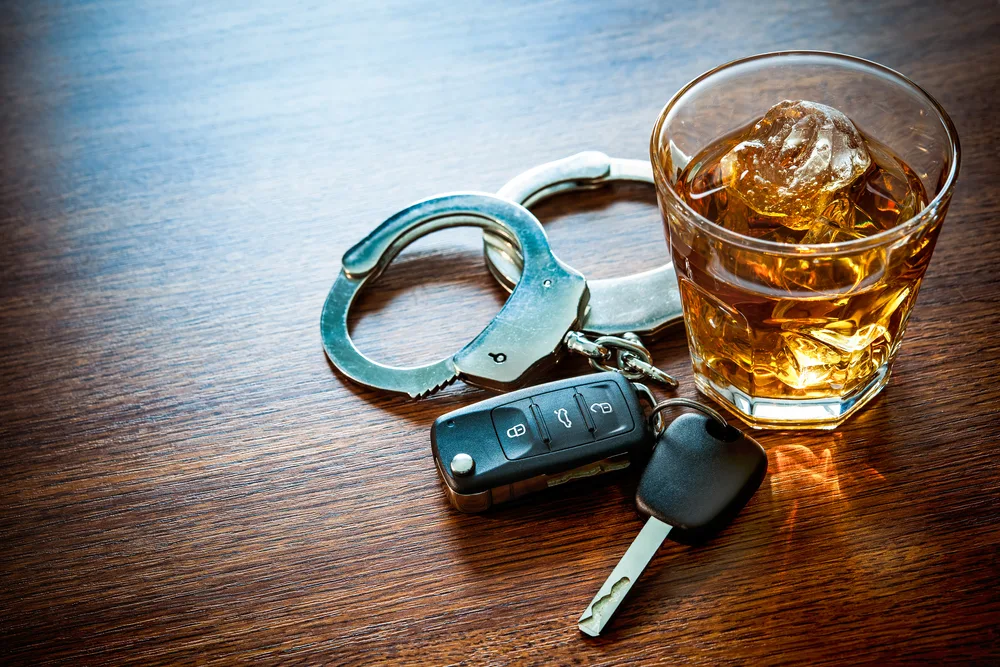Driving under the influence (DUI) is a serious offense that carries not only legal repercussions but also significant mental health implications. When discussing the link between a DUI and mental health, it’s crucial to recognize that the consequences extend far beyond the courtroom. Individuals charged with DUI often experience a cascade of mental illness, ranging from acute stress and anxiety to long-term disorders such as depression or post-traumatic stress disorder (PTSD).
Whether you are someone who has been charged with DUI, a mental health professional, or simply seeking to understand this complex issue, this article aims to provide valuable information and resources to address the multifaceted challenges at the intersection of driving under the influence and mental illness.

The Complex Relationship Between DUI Offenses and Mental Health
The relationship between DUI offenses and mental health is complex and bidirectional. On one hand, mental disorders can increase the risk of engaging in drunk driving due to factors like self-medication or impaired judgment. Conditions such as bipolar disorder, obsessive-compulsive disorder, and other psychiatric disorders may lead individuals to alcohol abuse, which in turn can result in a DUI charge. This is why it is so important that individuals can access comprehensive treatment programs for alcohol use disorder and co-occurring mental health conditions.
How Mental Health Issues Can Lead to DUI Behavior
Mental illnesses can impair an individual’s ability to make sound decisions, leading to an increased risk of drinking and driving. For example, someone with bipolar disorder may experience episodes of mania that can result in risky behaviors, including DUI. Similarly, individuals with depression may turn to alcohol as a form of self-medication, which can lead to alcohol addiction and, potentially, driving under the influence.
Understanding the dynamics of this relationship is crucial for developing effective prevention and treatment strategies. It underscores the need for integrated approaches that address both a mental health issue and DUI prevention efforts.
The Psychological Consequences of a DUI Charge
Being charged with a DUI can be a traumatic event with lasting psychological repercussions. The immediate aftermath of an arrest can unleash a flood of emotions, from shame and embarrassment to fear and uncertainty about the future. These feelings can be overwhelming, particularly for first-time offenders who have never navigated the criminal justice system.
Immediate Emotional Reactions to DUI Arrest
The shock of arrest can lead to intense emotional distress. Many individuals report feelings of anxiety and panic, concerns about judgment from family and peers, and fear of potential job loss or financial strain. These reactions are natural but can escalate into more serious mental illness issues if not appropriately addressed.
Long-Term Mental Health Effects of DUI Convictions
The long-term effects of a DUI conviction can be profound. The stigma attached to a DUI can result in social isolation and chronic stress, which are risk factors for developing mental health disorders. Additionally, the strain of legal consequences, such as fines, license suspension, and the possibility of incarceration, can contribute to ongoing mental illnesses like depression, PTSD, and substance abuse.
Navigating these psychological challenges requires a comprehensive support system and access to mental health services. It’s essential for those affected by DUI charges to seek professional help to cope with the immediate and long-term mental health effects.
DUI: A Symptom of Underlying Mental Health Disorders?

The prevalence of DUI charges among individuals with mental disorders suggests that, in many cases, DUI may be a symptom of deeper psychological issues. Alcohol abuse and substance use disorder are often intertwined with mental health conditions, serving as a misguided coping mechanism for those struggling with untreated or undiagnosed mental illnesses.
Alcohol Abuse and Mental Health Disorders
Alcohol use disorder and mental illness frequently co-occur, creating a complex web of challenges for the individual. Alcohol is commonly used to self-medicate symptoms of disorders such as anxiety, depression, and PTSD, but this temporary relief can lead to a dangerous pattern of drinking and driving.
The Cycle of DUI Offenses and Mental Health
For repeat offenders, the cycle of alcohol abuse and mental health issues can be particularly destructive. Each DUI charge can exacerbate existing mental health problems, leading to increased alcohol dependence and a higher likelihood of future offenses. Breaking this cycle is critical and requires a dual approach that addresses both the substance abuse and the underlying mental illness.
It highlights the importance of screening for a psychiatric disorder following a DUI charge and ensuring that treatment for these conditions is a central part of the rehabilitation process. By treating the root cause rather than just the symptoms, it’s possible to reduce the rate of DUI recidivism and support individuals in their journey toward recovery.
Legal Repercussions and Their Mental Health Implications
The legal consequences of a DUI charge are not just a matter of fines or potential jail time; they carry significant mental health implications as well. The legal process can be daunting, and its uncertainty and stress can profoundly impact an individual’s mental well-being.
The outcomes of a DUI case can include license suspension, fines, and even incarceration. These penalties not only affect one’s current living situation but also have the potential to impact future opportunities. The stress associated with these outcomes can contribute to defendants suffering from mental health problems such as anxiety disorders, depression, and, in severe cases, suicidal ideation.
Strategies for Coping with DUI-Related Mental Health Issues
After a DUI charge, individuals often face a range of emotions and mental health challenges. Developing coping strategies is crucial for maintaining mental well-being and preventing further legal and personal complications.
Professional Counseling and Therapy Options
Engaging with professional mental health services can be a vital step in addressing the psychological impact of a DUI. Counseling and therapy provide safe spaces for individuals to process their experiences and develop coping mechanisms. Therapists can also help address any underlying mental illness, such as depression or anxiety, which may have contributed to the DUI incident.
Support Systems and Community Resources
A strong support system is invaluable when coping with the aftermath of a DUI charge. This can include family, friends, support groups, and community resources. Such networks offer emotional support, practical advice, and a sense of belonging, all of which are important for recovery. Additionally, community resources may provide educational programs that focus on alcohol use, legal education, and the development of healthier coping strategies.
By utilizing these strategies, individuals can better manage the mental health issues associated with a DUI charge. It’s important to remember that seeking help is a sign of strength, not weakness, and it is a critical step towards recovery and preventing future incidents.
Recover From The Mental Health Impact of a DUI at Behavioral Health Centers

Recovering from the impact a DUI has on mental health is a journey that often requires professional intervention and a supportive environment. Behavioral Health Centers can play a pivotal role in this process, offering a range of substance abuse and mental health services tailored to those affected by DUI charges.
Comprehensive Treatment Programs
Our programs include detoxification, individual and group therapy, medication management, and relapse prevention strategies. They are designed to help individuals develop the skills needed to manage their mental health, maintain sobriety, and navigate the challenges of their legal situation.
Supportive Services and Aftercare
Recovery doesn’t end with treatment; it’s an ongoing process that requires continued support. Behavioral Health Centers provides aftercare services to help individuals reintegrate into their communities, maintain their mental health, and avoid future DUI incidents. This may include ongoing therapy, support groups, and assistance with legal obligations.
By addressing the mental health impact of a DUI holistically, Behavioral Health Centers can help individuals rebuild their lives. If you or someone you know is struggling with the aftermath of a DUI charge, contact Behavioral Health Centers for support. With the right help, recovery is not just possible; it’s within reach. Call today at 855-299-4472 to begin your journey toward recovery.





